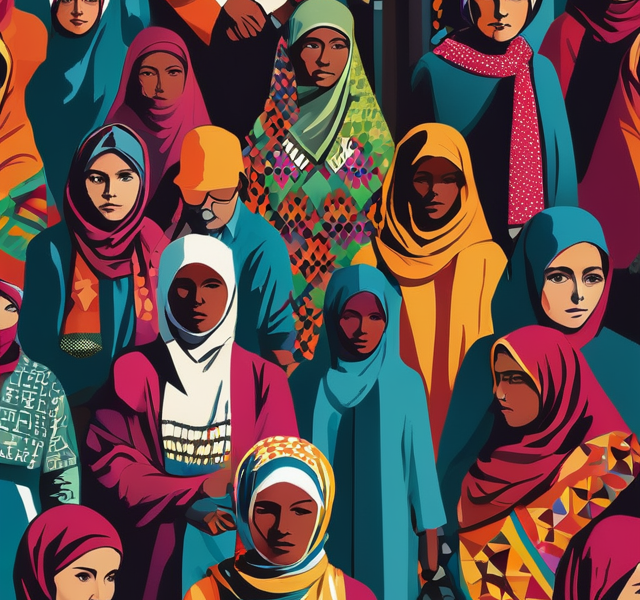Men have audacity! But there’s a certain brazenness that is reserved for Muslim men; an audacity to unabashedly demand and believe that the lives of Muslim women should revolve around them. They carry a deep-seated entitlement, the belief that a woman’s life is incomplete without their presence. This is why they take centre-stage in misogynistic conversations, and even the sacred month of Ramadan is not spared from their relentless demands.
Year in, year out, during Ramadan, Muslim men come online to declare that they cannot look after themselves, insisting that they need women to do basic tasks like preparing sahoor and iftar, doing their laundry and what have you. Things that any adult should be able to handle. The maddening thing is the utter lack of regard for women, as if we were created solely to cater to them. As if women, too, are not fasting. As if our purpose is merely to serve them.
Prophet Muhammad (peace be upon him) said: “The most complete of the believers in faith are those with the best character. And the best of you are those who are best to their women.” (Tirmidhi 1162)
But somehow, the only Sunnah they seem eager to follow is marrying four wives.
Women are not exempt from fasting (except in mandatory situations), yet we are expected to serve while men demand to be looked after. And I don’t blame them entirely—it’s our upbringing. Women are raised to believe that their ultimate purpose is to revolve around men. No matter what a woman achieves, she is constantly reminded that nothing compares to being a man’s wife. From childhood, we are conditioned to think about an imaginary husband, and every action is measured by how it will be perceived in “our husband’s house.” We are denied a sense of individuality outside of marriage and children, and this has only fueled the audacity of Muslim men.
And this brings me to my point: Muslim women must demand more. We must stop enabling bad behavior. The way men act, their entitlement, their demands and their blatant disregard is because women have been conditioned to bend over backwards to prove their so-called marriageability. We are expected to endure, to sacrifice, to prove we are “good women.” If one woman refuses, another will do it just to earn validation. The need to prove our worth as wives has led to the normalization of disrespect and imbalance.
Yet, Islam does not place this burden on us.
The Prophet (peace be upon him) said: “Indeed, your wife has a right over you.” (Sunan Abu Dawood 2142)
Household duties are not a woman’s obligation in Islam—they are a shared responsibility. The Prophet himself set the example. Aisha (may Allah be pleased with her) was asked what the Prophet did at home, and she said: “He used to serve his family, and when it was time for prayer, he would go out to pray.” (Bukhari 676)
The same men who insist on following the Prophet in polygamy conveniently ignore the fact that he participated in household chores. If the Prophet of Islam (SAW) could cook, clean, and mend his own clothes, then what is the excuse of modern Muslim men?
Just as men demand; so should we. Marriage is beneficial to both partners, in fact, more beneficial to men. So why should we be the only ones making sacrifices? Men must also cook, clean, look after the children, and prepare sahoor and iftar. These are responsibilities of adults, not just women.
Men are quick to tell women to be humble, to consider their husband’s financial status before asking for mahr, to compromise on looks and wealth, to endure and accept less. But where is that same humility when it comes to their own obligations? Why is it always women who must adjust, endure, and suffer in silence? We are not doormats. We are not created for their pleasure alone.
Enough of the humility. Enough of the endurance. The home is beneficial to all members, and Muslim women also exist for themselves. We are individuals with our own thoughts, beliefs, and rights. We have the right to demand better treatment. We have the right to be seen, to be heard, and to be respected.
You have a voice—use it. Demand more.




